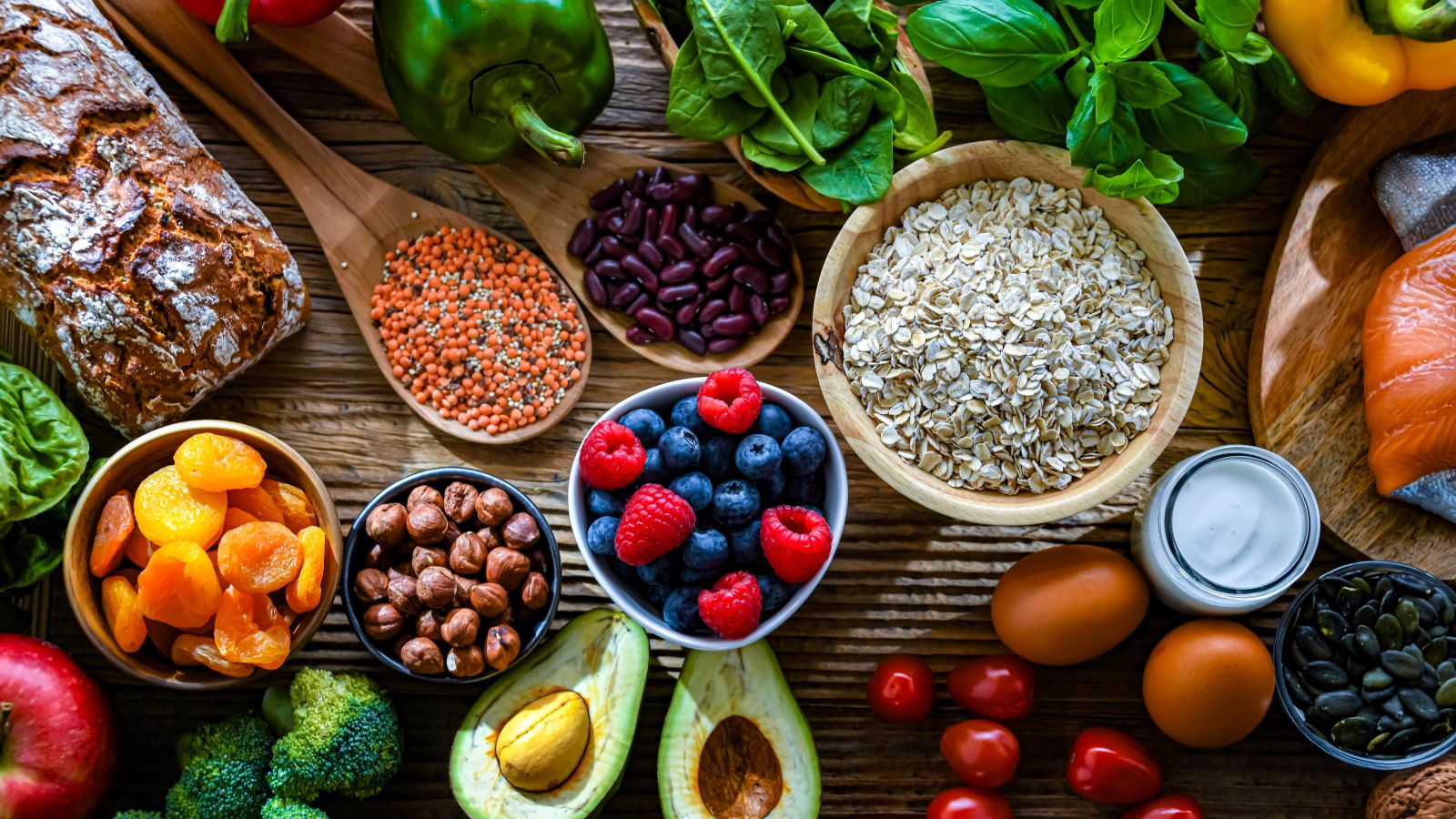<< Back
The Best (and Worst) Foods for Keeping Your Gut Moving

April 24, 2025
Feeling bloated, constipated or just off? Your gut might need a little extra support.
But the good news is that the right foods can get things moving again.
To find the best balance, we turned to Jamie Allers, MS, a registered dietitian with Hartford HealthCare’s Digestive Health Institute. She shares the top foods to support your gut – and the ones to eat in moderation – to help you feel your best.
A healthy gut starts with your plate.
There are a few key pillars that keep digestion running smoothly.
Allers shares the top three:
- Fiber adds bulk to stool and promotes regular bowel movements.
- Hydration helps keep stools soft and digestion on track.
- Probiotics and prebiotics provide good bacteria and support gut health.
This is helpful, but what about your grocery list?
4 foods to keep things moving.
1. Whole grains.
Oats, brown rice and whole wheat bread are simple ways to boost fiber – and your digestion will thank you.
“These fiber-rich foods support digestive health and help prevent constipation,” says Allers. “They’re so easy to add to your day, like a warm bowl of oatmeal to start your morning right.”
Whole grains can also help with weight management, which benefits overall gut health.
> Related: Nutrition Smack Down: Whole Grains
2. Fruit.
What’s better than a crisp apple or a bowl of juicy berries?
“They’re packed with antioxidants for gut health, plus soluble fiber and water to keep digestion moving,” says Allers. “It’s a little sweetness with big benefits.”
> Related: 5 Reasons to Eat More Apples
3. Leafy greens.
Spinach, kale and other leafy greens are great for digestion. According to Allers, they offer three key benefits:
- Rich in fiber, which helps keep digestion regular.
- A good source of magnesium, supporting the muscle contractions that move food through the digestive tract.
- Promote the growth of healthy gut bacteria, essential for overall digestive health.
4. Yogurt.
Yogurt isn’t just tasty – it’s packed with probiotics that help keep your gut happy.
“It helps balance gut bacteria, supports digestion and can even reduce bloating,” says Allers. “For the best benefits, look for yogurts with live and active cultures.”
> Want more health news? Text StartHere to 85209 to sign up for text alerts
4 foods that may slow you down.
“There’s no such thing as bad food, but if you’re focusing on gut movement, some foods are better in moderation,” says Allers.
Here are a few to keep an eye on:
- Processed foods: Low in fiber and high in unhealthy fats, these foods can slow digestion. Additives and preservatives may disrupt gut flora, and excess sodium can lead to dehydration.
- Red meat: High in fat and low in fiber, this protein can be harder to digest. Eating too much can also impact gut bacteria.
- Dairy (for some): Dairy can cause bloating and constipation if you’re lactose intolerant. High-fat dairy products may also slow digestion.
- Fried foods: Loaded with unhealthy fats and low in fiber, these take longer to break down, often leading to bloating and sluggish digestion.
It’s not just the food you eat – it’s when you eat.
Eating regularly throughout the day helps keep your digestive system moving, while giving it time to rest overnight supports overall gut health. Make sure to avoid skipped meals and try to limit late-night eating close to bedtime.
Along with a balanced diet, stay active to keep your digestion on track.
“The digestive system is different for everyone,” says Allers. “Pay attention to how your body responds to certain foods, and don’t hesitate to check in with your doctor or dietitian for personalized advice.”